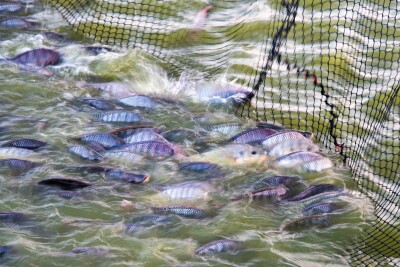And you thought it couldn’t get worse than IFQs. Well, I wasn’t sure it could. But it does seem logical that having a healthy commercial fishery in the hands of a few commercial fishermen is, indeed, a better option than having no fishery at all.
The latter is what commercial fishermen and charter captains throughout the Gulf Coast states are fearing.
Louisiana snapper fisherman and NF Highliner Wayne Werner successfully sued the federal government for failing to enforce recreational fishing quotas. Wayne Werner photoLast year, a group of commercial fishermen sued NMFS for failing to keep recreational snapper fishermen within their limits for years on end. They won the suit, and the result has led to measures that would in fact curtail the recreational catch.
The Coastal Conservation Association (the recreational fishing organization that has fought to put commercial quota into the hands of recreational fishermen all over the country) has been making a full-court press to imperil the commercial fleet to the advantage of sport quotas.
As I wrote last summer, two pieces of legislation in Louisiana attempted to wrest control of the snapper fishery from the Gulf council and divide it among the states to manage individually. This may seem a tempting offer to localize fishery management. But the motive behind it is to hand over more of the recovered snapper quota to the rec sector. As it stands now, they are apparently not satisfied with overshooting their 49 percent every year.
Rather than curb their enthusiasm for overfishing, the recreational groups would prefer to just be handed the amount of quota they are already overfishing and simply subtract their overage from the commercial fleet’s quota. That’s fair, right?
Regardless of fairness, that is what’s happening. Political leaders from the gulf states gathered in a private meeting recently and agreed to terms that would divide the snapper quota among the five states — Florida, Alabama, Mississippi, Louisiana and Texas — they will now take to Congress for approval.
It is hard to believe that any commercial fleets would have this kind of support from politicians if they had been exceeding their quota year after year after year. Meanwhile, the commercial fishermen have been under strict fishing quota management, which has led to many a commercial fisherman losing his rights and ability to fish and therefore losing his livelihood.
Should those sacrifices have been for nothing just so the local CVBs can tout a long fishing season for tourists? And what will happen when the commercial fleet is gone and the recreational fleet fishes snapper into oblivion? After all, they have as of yet shown no intention nor ability to conserve. If they get what they want, snapper will no longer be on local menus and eventually, it will stop showing up on anglers’ hooks. What will the tourism boards sell then?
Recreational fishermen have been complaining that their season is too short, yet year over year, they exceed their quotas. How is it logical to give them more fish when they already take more than they should? Until there is a better system in place to dole out the considerable recreational quota over a longer season, the season will be short. Those would be the rules for a commercial fishery. So why would they not follow for recreational fishermen?
This move is a short-sighted end-run around management that has brought back the red snapper to a healthy population. If you put that management in the wrong hands now, at the height of snapper’s recovery, you will likely soon have nothing to show for it.
Fish do not stay within state lines. To divide the snapper quota among states would be to introduce confusion and the false sense of control over a wide-ranging population.
We are succeeding at bringing the snapper population back. What we need to work on is how to regulate the recreational effort to expand their season rather than just dumping quota on a group that doesn’t know how to manage it.







